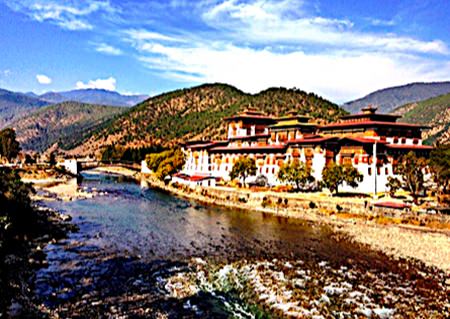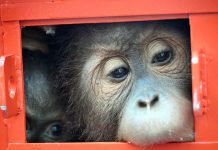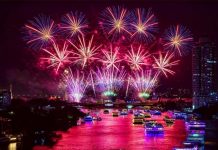Celebrating 25 years of diplomatic relations
Bhutan’s Prime Minister Lyonchhoen Tshering Tobgay requested earlier this month that tour operators develop special packages to attract Thai tourists, starting in June, July and August of this year, during the country’s low season.
Today, the minimum daily tariff is US$250 per tourist per day during peak season, and US$200 during low season, which includes 3 star hotel accommodation, 3 meals per day, a professional guide and transport, from which the government retains a royalty (tax) of US$65 per tourist per day. For Thai guests the new minimum daily fee will now be only $65, everything else is not compulsory.

The PM commenting on the special promotion said such an initiative would help the lean low season, thereby promoting the country as an all year round tourist destination.
“For the lean months of June, July and August, we’ll offer attractive packages for Thai tourists to begin with,” The PM said, addressing over 70 tour operators. “If it works, we’ll come out with country specific products to attract tourists from each region.”
Tour operators, the PM said, should be able to attract Thai tourists, given His Majesty’s popularity in Thailand, and the diplomatic relations the two countries enjoy.
For this to work, he said, he would also request tourism stakeholders, such as hoteliers and the national airlines, to consider huge discounts during the specified months.
“Tourist season in Bhutan is just for a span of about five months, and the rest of the year is under-utilised,” he said, adding the eastern and southern belts of the country are yet to be explored.
“Let us all work together to have tourists visiting the country throughout the year,” the PM said, assuring government support.
“It has been more than 40 years since the country opened to tourism, therefore we need to develop more products, We could try out with Thailand, and make them feel special,” commented PM Tshering Tobgay.
The PM would like to invite Thai nationals this summer by waiving off the tourists tariff. They will be required to pay only US$65 royalty and the tour operators package and will be offered 50% discounts on Drukair. This is to celebrate the 25 year anniversary of diplomatic relations between the two countries and also to mark the very strong friendship and mutual respect between the two royal families.
Bhutan, a tiny, remote and impoverished kingdom nestling in the Himalayas between its powerful neighbours, India and China, has been almost completely cut off for centuries. It has tried to let in some aspects of the outside world while fiercely guarding its ancient traditions.
The Bhutanese name for Bhutan, Druk Yul, means “Land of the Thunder Dragon” and it only began to open up to outsiders in the 1970s.
Bhutan’s ancient Buddhist culture and breathtaking scenery make it a natural tourist attraction and Bhutan welcomes thousands of Thai visitors each year.
Tourism is restricted; visitors must normally travel as part of a pre-arranged package or guided tour. Backpackers and independent travellers are discouraged.
National dress is compulsory for it’s citizens, the knee-length wrap-around “gho” for men and the ankle-length dress known as the “kira” for women.
The Bhutanese monarchy has also promoted the philosophy of “Gross National Happiness” (GNH), which strives to achieve a balance between the spiritual and the material. The tiny kingdom’s philosophy recognises that there are many dimensions to development and that economic goals alone are not sufficient. A philosophy made popular by the present King’s father who abdicated in December 2006, paving the way for his son, Jigme Khesar Namgyel Wangchuck, to become King.
For tourists from Thailand, the daily tariff is considered an impediment to growth, also tour operators have suggested that the Thai baht should be accepted instead of US$ and that the promotion be open to Thai residents.
The PM said he would raise the issue of accepting Thai baht with the Royal Monetary Authority, and also look into the financial implications. He also said that the focus should be just on Thai tourists for now.
The PM said tourism revenue was very important for the country to improve tourist amenities and to contribute towards health and education. “It’s like a golden goose for us,” he said.
President of the Association of Bhutan Tour Operators (ABTO), Karma Lotey, said it stands as a test for tour operators. “There’s nothing for tour operators to be alarmed about,” he said, adding it was a good opportunity.
“What’s important is how we package, I personally welcome the move from the government,” said Lotey, CEO of the highly regarded Yangphel Adventure Travel company.
The Bhutanese Prime Minister is Chairperson of the Tourism Council Board. Present at the meeting and representing the private sector on the Council Board were the presidents of ABTO, the Bhutan Chamber of Commerce and Industries, and the Hotel Association.
One observer commented, “It is amazing how many Thai people know about HM King Jigme and warmly welcome Bhutanese visitors. All Thai taxi drivers know King Jigme.”




